Since 2022, the Wistron Foundation has introduced new conservation efforts at Guandu Nature Park by partnering with the Wild Bird Society of Taipei to launch the “Moon Pond Adoption Project.” Together, they are working to protect the “Freshwater Pond Habitat—Moon Pond.”
Moon Pond, shaped like a crescent, spans approximately 0.36 hectares (1,000 pings). This man-made wetland relies on limited surface runoff and groundwater seepage for water, with its primary supply coming from the final sedimentation pond near Heart Field Wetland, flowing downstream via Shuimokeng Creek to reach Moon Pond.
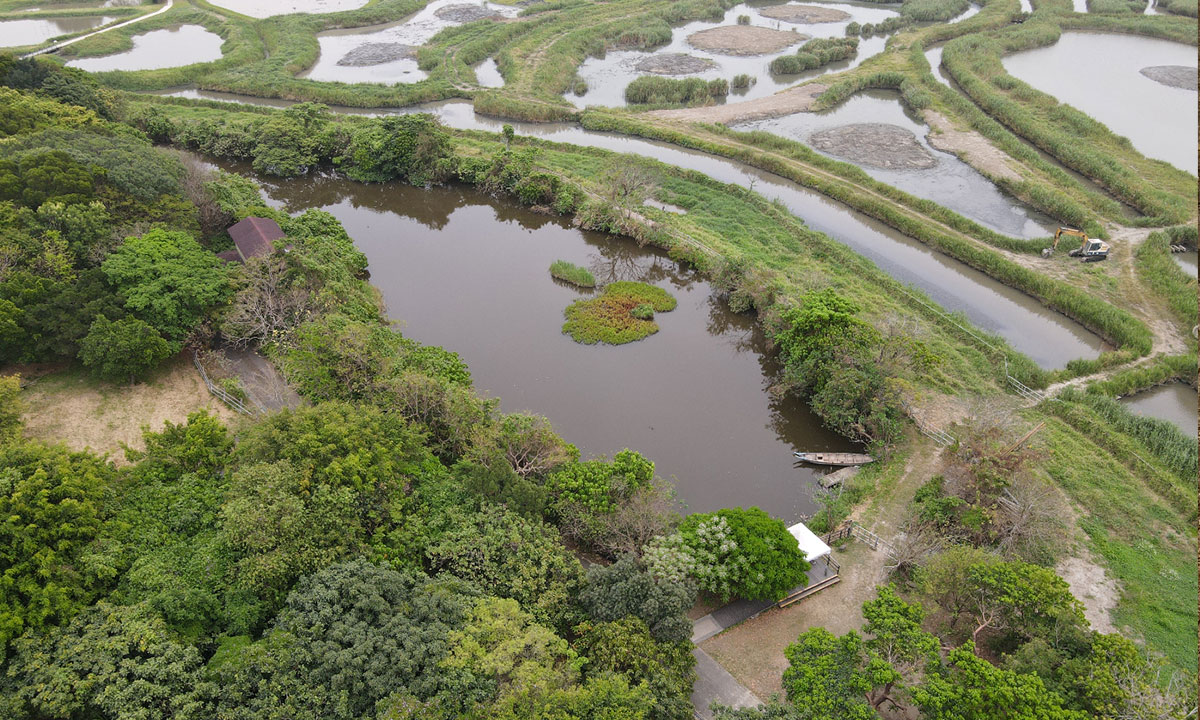
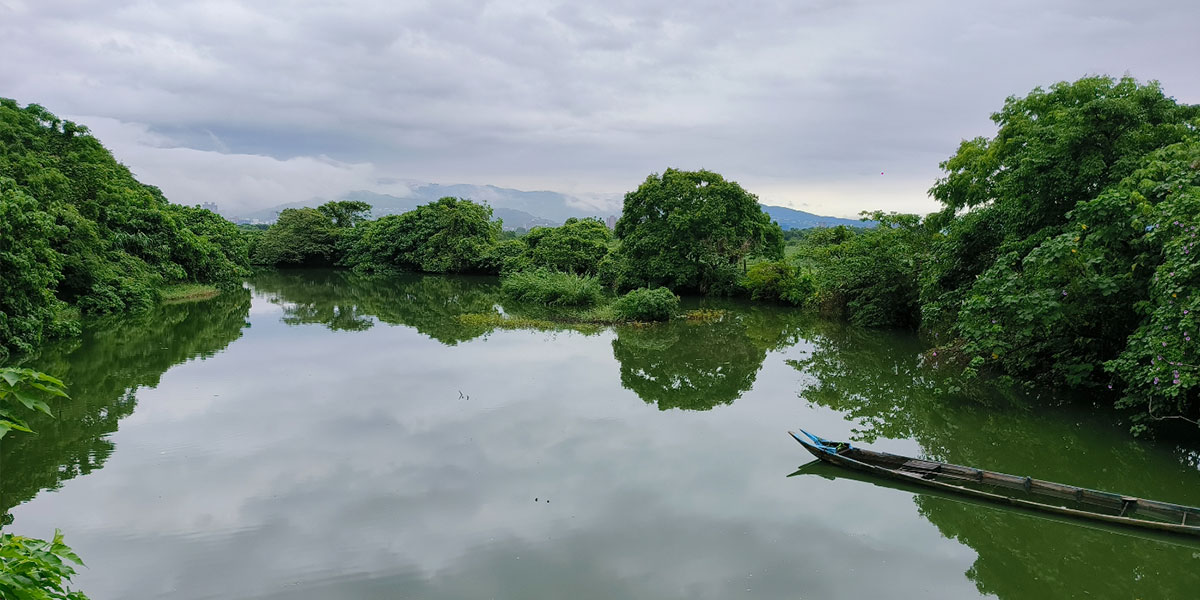
During the high-water season, the shimmering, picturesque Moon Pond becomes a haven for freely visiting egrets and ducks, boasting rich biodiversity. As the largest artificial freshwater pond in Guandu Nature Park, it has served as an ark for over a decade, safeguarding native flora and fauna.
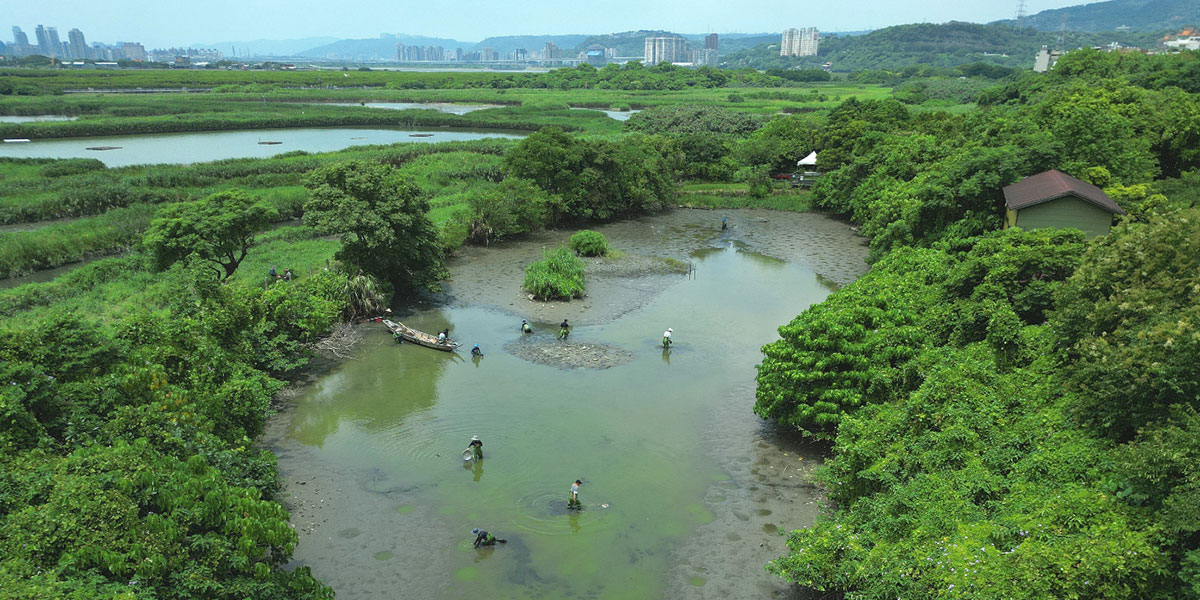
However, beneath the water's surface, invasive fish species have proliferated, severely disrupting the habitats and reproduction of native fish. These hardy invaders face almost no predators in Taiwan. For example, the striped snakehead can survive for up to two weeks on dry, muddy land during the dry season. Once established in ponds and wetlands, they compete with native fish for food, causing sharp population declines, and voraciously consume aquatic plants, hindering their growth.
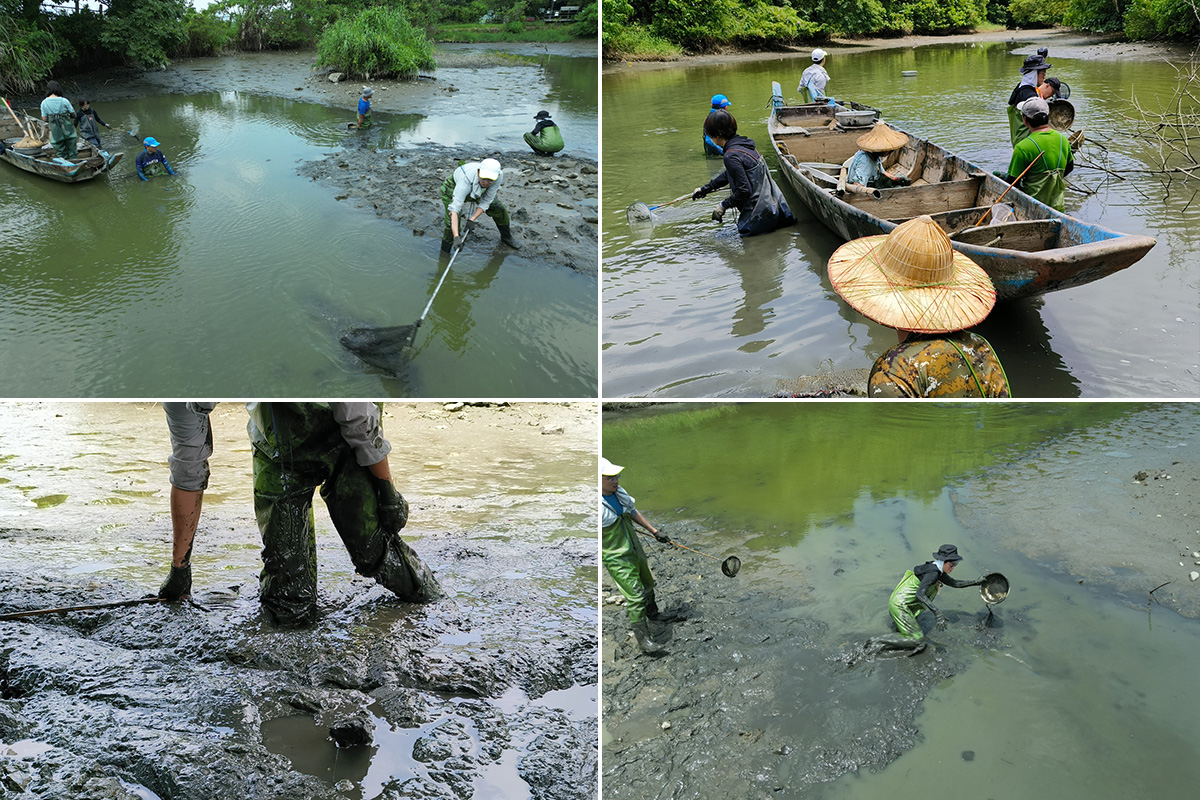
To help Wistron’s Guandu Wetland volunteers better understand the importance of protecting Moon Pond, the Wistron Foundation collaborated with Guandu Nature Park to organize a working holiday focused on removing invasive fish species from the pond. Many volunteers were curious about the process. First, the pond had to be drained. After several days, the water level was reduced to about knee height. Guided by Guandu Nature Park staff, the volunteers crossed the restricted area’s fence, donned waterproof waders, and put on work gloves. Equipped with fishing nets and basins, they followed Ah-Fu from the park’s environmental team, who confidently stepped into Moon Pond first. The volunteers ventured into the pond with excitement, only to find their feet sinking deep into the muddy swamp, making movement increasingly difficult. Some became stuck, unable to take another step, while others ended up with mud covering their arms and bodies. Despite the scorching summer heat and challenging conditions, their determination remained steadfast. The primary goal of the working holiday was to remove invasive fish species. Upon spotting any fish, the volunteers worked together to encircle them with nets and basins. The captured invasive fish were then transferred to a small boat for removal.
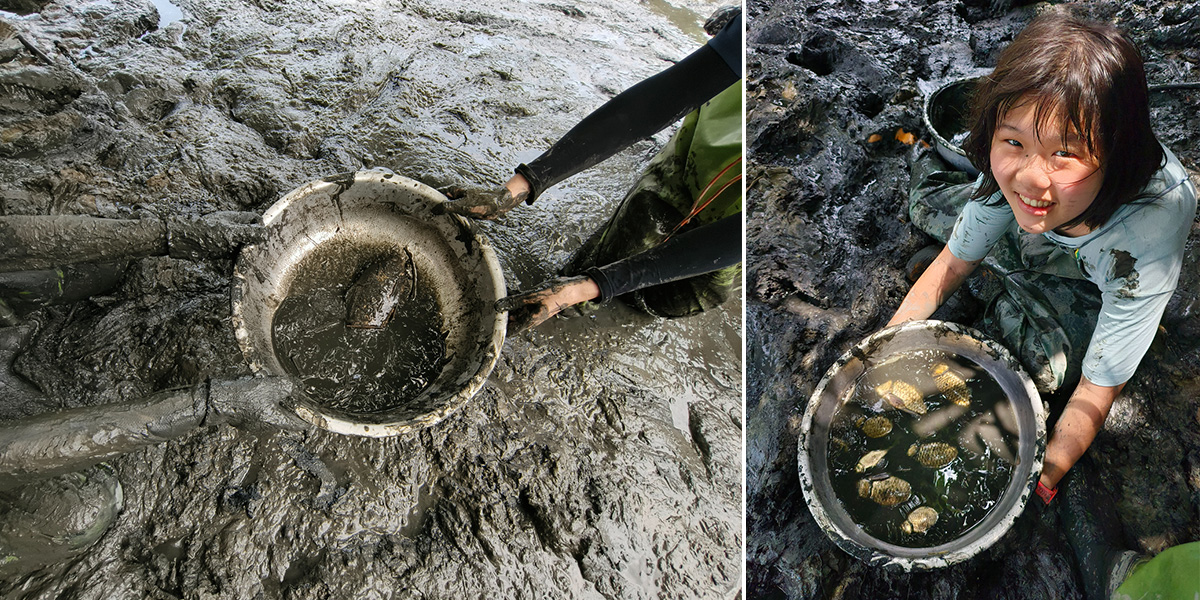
After a morning of collaborative effort, the volunteers successfully captured a total of 3 black carp, 30 Japanese carps, 3 Indo-Pacific tarpon, 2 striped snakeheads, 50 gobies, and 100 invasive shrimp. The results were impressive.
On this day, Wistron’s Guandu Wetland volunteers braved the scorching summer heat to work together to remove invasive species that threaten the native ecosystem. Their efforts contributed to protecting the ecological environment of Moon Pond, providing a safer habitat for native fish species.




 中
中